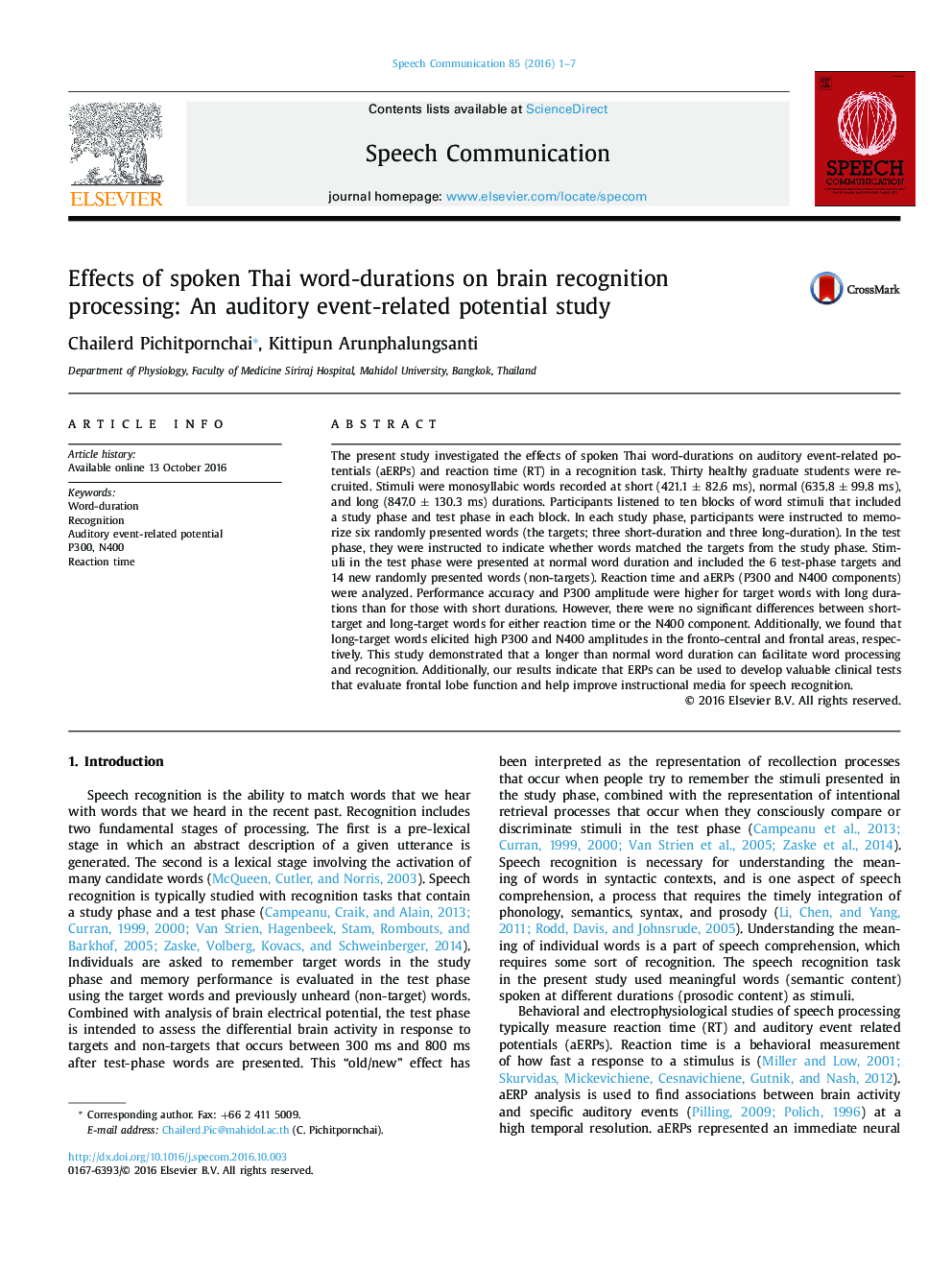| Article ID | Journal | Published Year | Pages | File Type |
|---|---|---|---|---|
| 4977856 | Speech Communication | 2016 | 7 Pages |
Abstract
The present study investigated the effects of spoken Thai word-durations on auditory event-related potentials (aERPs) and reaction time (RT) in a recognition task. Thirty healthy graduate students were recruited. Stimuli were monosyllabic words recorded at short (421.1 ± 82.6 ms), normal (635.8 ± 99.8 ms), and long (847.0 ± 130.3 ms) durations. Participants listened to ten blocks of word stimuli that included a study phase and test phase in each block. In each study phase, participants were instructed to memorize six randomly presented words (the targets; three short-duration and three long-duration). In the test phase, they were instructed to indicate whether words matched the targets from the study phase. Stimuli in the test phase were presented at normal word duration and included the 6 test-phase targets and 14 new randomly presented words (non-targets). Reaction time and aERPs (P300 and N400 components) were analyzed. Performance accuracy and P300 amplitude were higher for target words with long durations than for those with short durations. However, there were no significant differences between short-target and long-target words for either reaction time or the N400 component. Additionally, we found that long-target words elicited high P300 and N400 amplitudes in the fronto-central and frontal areas, respectively. This study demonstrated that a longer than normal word duration can facilitate word processing and recognition. Additionally, our results indicate that ERPs can be used to develop valuable clinical tests that evaluate frontal lobe function and help improve instructional media for speech recognition.
Related Topics
Physical Sciences and Engineering
Computer Science
Signal Processing
Authors
Chailerd Pichitpornchai, Kittipun Arunphalungsanti,
